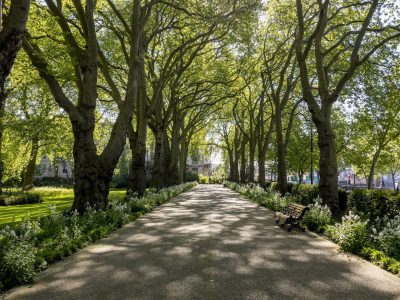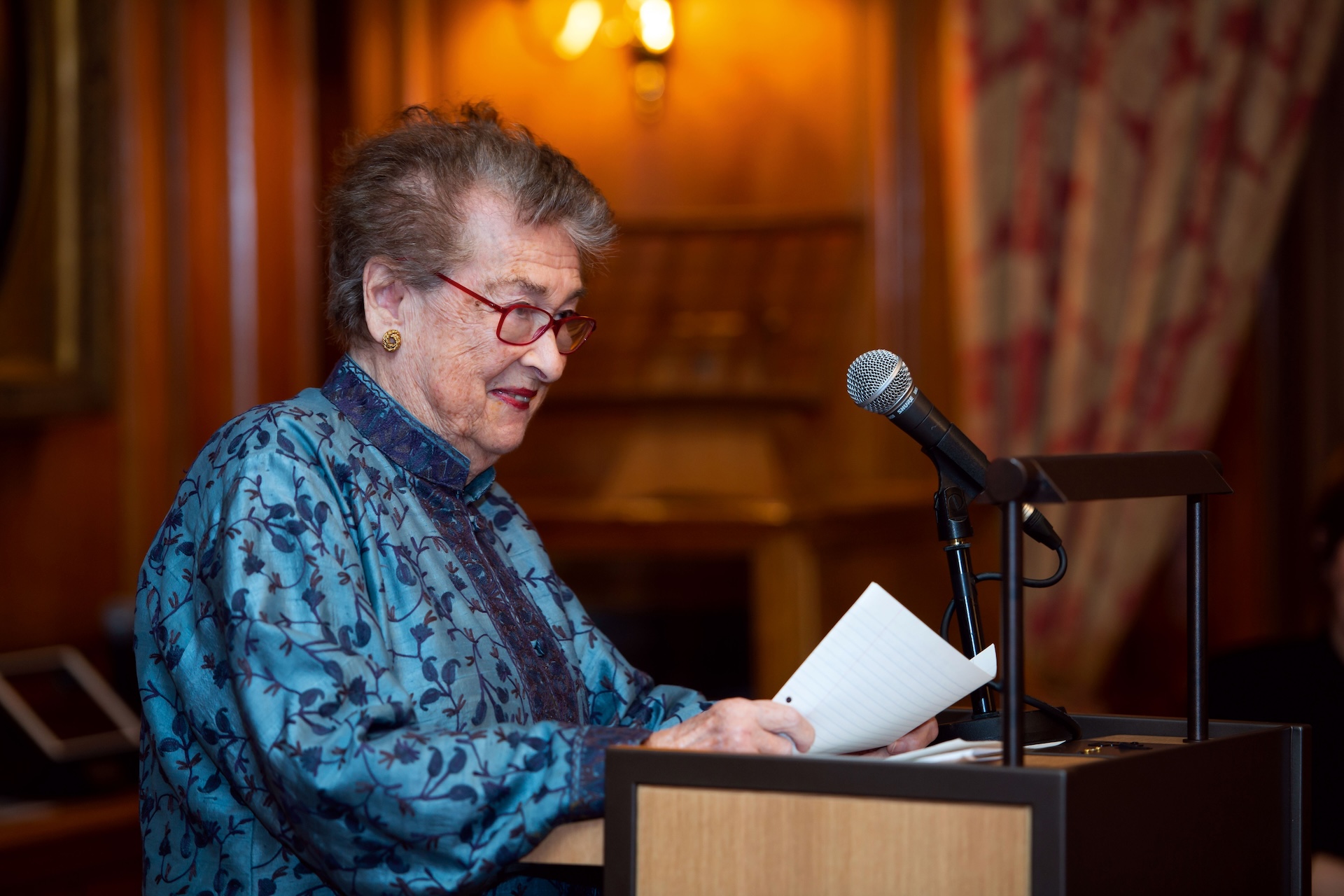
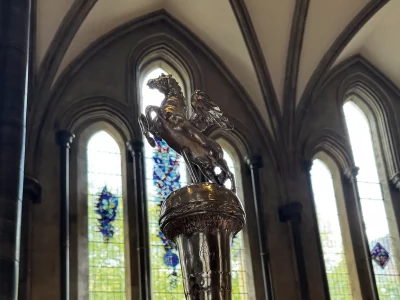
Incorporation of the Temple Church Trust
The Round Church and original Chancel were consecrated in 1185. The present (second) Chancel was consecrated in the presence of Henry III in 1240.
For over 800 years, the Temple Church has been a place of Christian worship in the City of London.
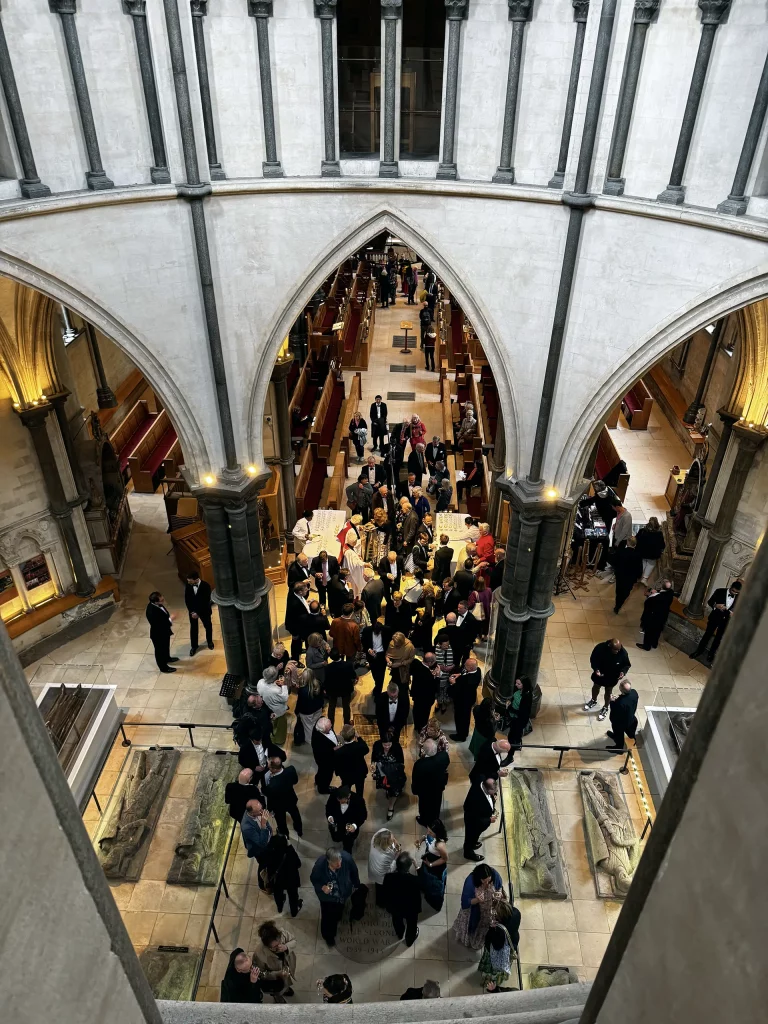
In the area around the Temple Church and within the Temple Bar, evolved the Inns of The Inner and Middle Temple described in 1608 as “having long been among those four most celebrated colleges of all Europe continually filled with persons studious and learned in the aforesaid laws.” (Royal Charter of 1608).
It was by the Royal Charter that, on 13 August 1608, James I transferred the land and buildings used by the Inns of The Inner and Middle Temple to the lawyers who practised in both Inns. Included in the transfer of those land and buildings was the Temple Church in return for the two Inns agreeing to maintain it and pay an annuity to the Master of the Temple. The Sovereign retained the right to nominate the incumbent. The Church has the status of a Royal Peculiar.

The Royal Charter created a charity to “serve for the accommodation and education of those studying and following the profession of the aforesaid laws, abiding in the same Inns for all time to come.” (Royal Charter of 1608).
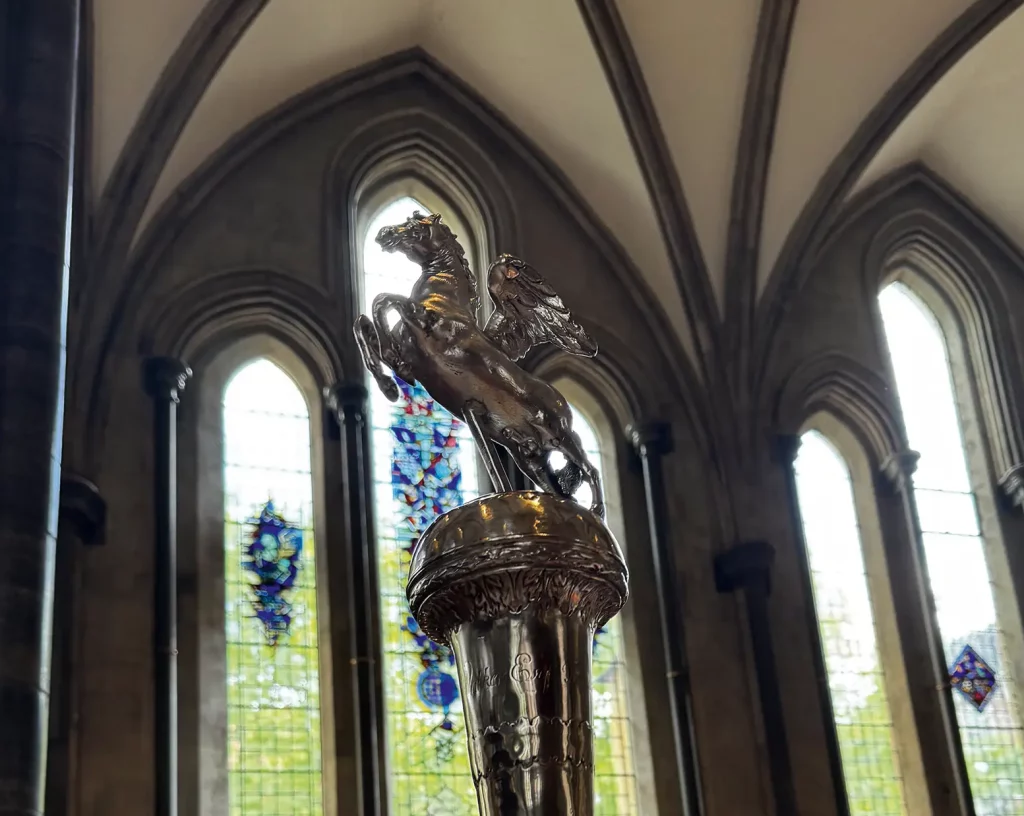
Nearly 416 years later, on 12 June 2024, the Inns transferred their responsibility for the day-to-day management of the Temple Church to a registered charity, The Temple Church Trust (Charity No 1205712). The Inns will retain ownership of the Church estate and provide an annual grant to the Trust to enable it to carry out the Inns’ obligations set out in the Royal Charter.
The purpose of the Trust is to manage the Temple Church for the benefit of the public. It will do so by advancing the Christian religion by maintaining the Church for the regular religious services on Sundays and Wednesdays during the legal terms and all other celebrations. The Trust will also support the Master of the Temple, the Rev’d Robin Griffith-Jones, in the provision of religious instruction and pastoral care and ministry to those who live and work within the Inns and in the vicinity of the Temple. The Trust will be responsible for preserving the architectural heritage of the Temple Church.
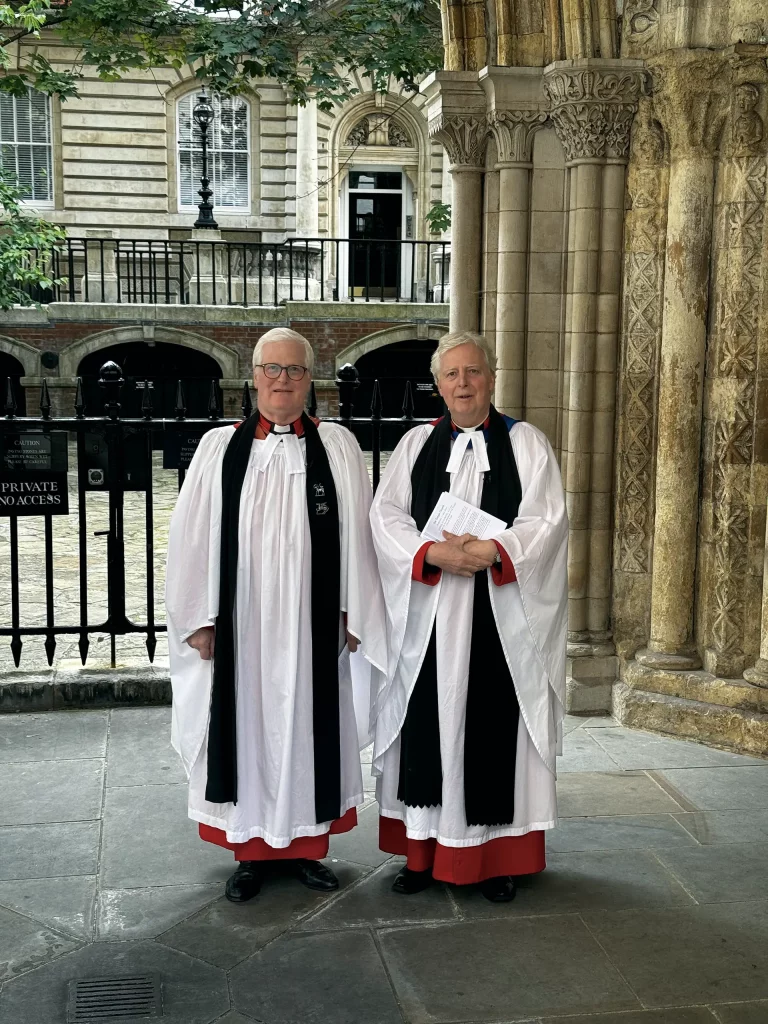
The Trust will assume responsibility for the selection and training of the choristers and the recruitment and maintenance of the choir. The Trust will raise funds to develop outreach activities to promote choral music among school children in London and the City in particular.
The Trust will work with the Master of the Temple and Director of Music, Thomas Allery, to develop a programme to advance the education of the public in its knowledge, understanding and appreciation of the history of the Temple Church and the Inns; the architecture of the Church; the relationship between law and religion; and church and other music.
The Inner Temple and Middle Temple, acting jointly, are responsible for appointing the Trustees of the Trust. A Trustee is both a company director and a charity trustee. Paul Cutts has recently been appointed the first Chief Executive of the Trust and the Trust will become fully operational on 1 September 2024.
The Master of the Temple retains overall responsibility for the Temple Church and is accountable to the Bishop of London as Dean of the Chapels Royal.
The Temple Church had outgrown the governance structure of a joint committee of both Inns. The annual income of the church meant that it would be more tax efficient for it to become a registered charity. It would also enable the Church to incorporate a commercial subsidiary company, Temple Church Enterprises Limited, to expand the Church’s non-ecclesiastical activities.
The Church also wants to develop its highly regarded concert programme performed by the Temple Church choir and Temple Singers and to hire the various spaces within the Church for independent concerts and musical events.
The Church is one of the most historic and beautiful churches in London and an important heritage site. It is a popular tourist attraction. The Church also wants to develop its highly regarded concert programme performed by the Temple Church choir and Temple Singers and to hire the various spaces within the Church for independent concerts and musical events. The Church is also an excellent venue for exhibitions, seminars and other cultural events (many of which will be ticketed). The Church also generates income from the sale of the rights to film and record music in the Church.
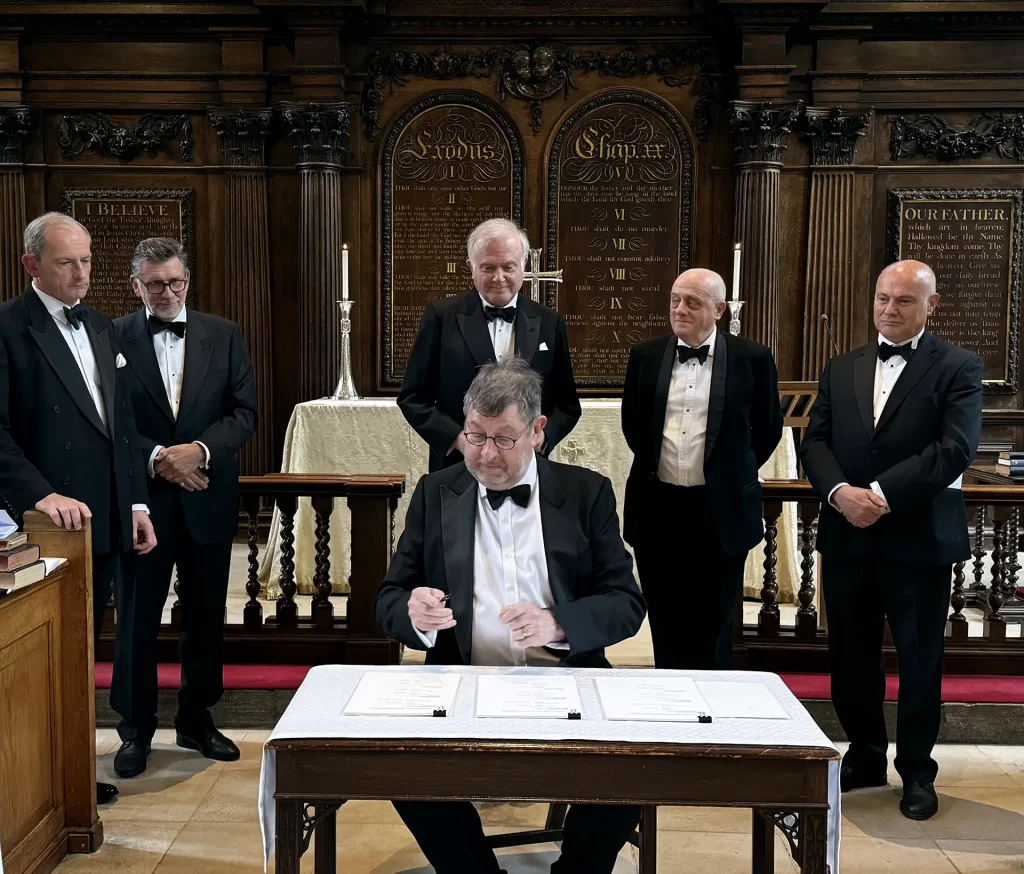
Simon O’Toole, Treasurer of the Temple Church Trust and Greg Dorey CVO, Sub-Treasurer, Inner Temple
The Trust will also be able to fund raise and use the income generated by Temple Church Enterprises to develop its charitable objectives.
The incorporation of a registered charity to look after the Temple Church on behalf of the Inns has been a significant step in the evolution of the Church which is “steeped in the history of Christendom, this country and of the whole Common Law World.” The Church website (templechurch.com)
contains more information about services and events and the history of the Temple Church.
Simon O’Toole
Treasurer, Temple Church Trust
I am grateful to Sir John Baker KC (Downing Professor Emeritus of the Laws of England, and an Inner Temple Bencher) for his translation of the Royal Charter.
